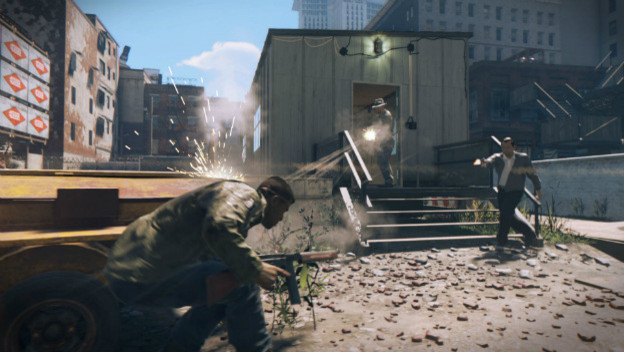Remember how exciting demos used to be? And not only that, but remember how frequent demos used to be released? There were entire monthly magazines back in the halcyon days of economic excess that built an audience based on coming with demo discs. I remember getting discs in the mail from Sony itself for being a PlayStation Underground member, which didn’t cost a dime. These were different times of course, and the concept of the demo has changed drastically. It even seemed like demos were vanishing outright for a while, save for gimmicks like PlayStation Plus trials and of course trade shows like E3 and PAX. But another, smaller trend seems to be gearing up, one that makes sense in our contemporary gaming climate.
I realized this may be a trend when recently the developer and publisher of The Surge announced a demo to the game would be released on all relevant platforms. This news came well after the game was released and any buzz the game had died off. The thing about the situation is, The Surge didn’t have much buzz at all. People seemed curious about it; after all, Dark Souls and games like it have become a huge part of our culture. But after it dropped, it landed to little fanfare or marketing, and a slew of “yeah, this is pretty neat I guess” reviews made sure there was little room in The Discourse for The Surge .
Not too long before The Surge made news with its demo, 2K Games had people talking by dropping a demo for Mafia 3 , a game that had much more presence in the AAA buzz cycle, but ended up disappointing enough people that it got lost between the cracks as well. Timing its release with some new DLC content, 2K dropped a demo for Mafia 3 as if to say, “Hey, sure we didn’t get 9s and 10s across the board, but we still think our game is dope. Check it out for free?” Notice a pattern here?
While the occasional pre-release demo still trickles onto our favorite marketplaces every now and then, I’m starting to think the demo is going to find new value and traction for these kinds of situations. For too long now, games have been stuck in this weird “AAA versus Indies” rut, with little room for anything in-between. This is thanks to things like unstable finances in the industry and smaller devs and publishers struggling to be noticed enough to justify more ambition and larger budgets. When you had things happening last generation, like Square Enix expressing disappointment in Tomb Raider despite selling a bajillion copies, something was wrong.

But things are a little better now, and console gaming has blown up to a high level again. Maybe a demo won’t go back to being feasible for publishers to worry about before release, but there appears to be some value in the post-release realm. It’s a new angle, and it may be a profitable one. What if your game, that you thought would be great, happens to fall in the middle of games that are just better, or more effectively sold? Your game may not be at that level, but it’s still pretty good, right? Drop a demo during a slow week and people will notice. The precedent seems to have been established; now it’s up to the publishers to capitalize.
